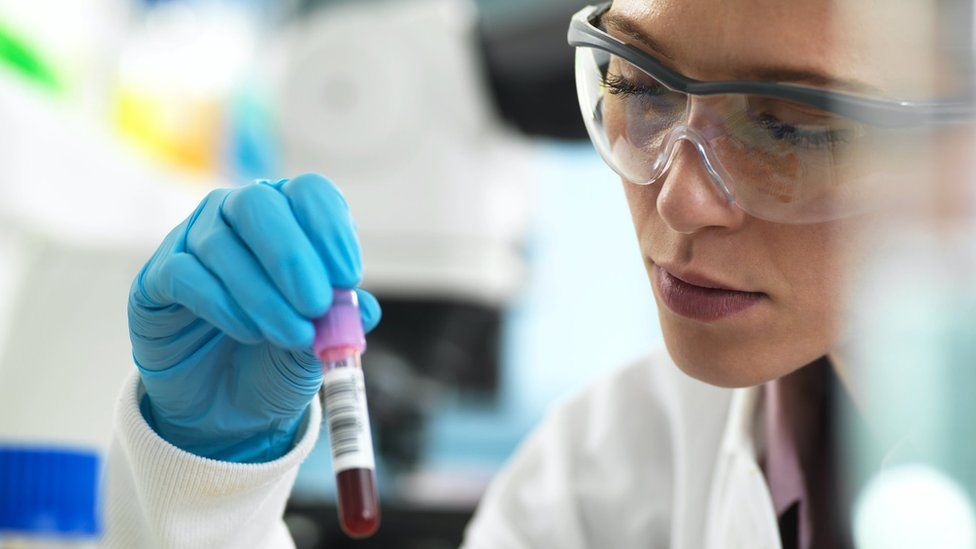ARTICLE AD BOX
 Image source, Getty Images
Image source, Getty Images
By Smitha Mundasad
Health reporter
Researchers are calling on five million UK adults to join what they hope will be one of the biggest studies in the world, to create the most detailed picture ever of the nation's health.
The aim is it to find better ways to prevent, spot and treat illnesses like cancer and dementia early on.
It will involve collecting health and genetic data and creating a long-term repository of health information.
Our Future Health is part-funded by government, industry and charities.
They hope to get their first set of results in the next few years.
Chairman of the programme, Prof Sir John Bell, said the ambition is to use the results to fundamentally shift the focus of healthcare systems to earlier diagnosis and prevention.
He added: "People are being treated for diseases that they may have had for 20 or 30 years and which have then become symptomatic, and the whole healthcare system is tuned to reducing the impact of those symptoms for people at the late stage.
"But we know already that most diseases start many years before they become symptomatic, and it is during those initial periods that you really have the opportunity to make a difference."
Genetic risk scores
Invitations will go out this autumn to more than three million people in London, West Yorkshire, West Midlands and Greater Manchester. Over time it will be open to all UK adults.
- fill in questionnaires about their lifestyles and any health problems
- have blood tests for measurements such as blood sugar and cholesterol
- have their height, weight and blood pressure measured
- take genetic tests
- consent to share their NHS records.
According to the plans the information will be used in a number of different ways.
Scientists will collate and combine this information and store it so that people cannot be identified, building up a bank of health and genetic data.
Academic, clinical and commercial researchers - from universities, charities, companies and the NHS for example - will apply to use it to help discover new ways to diagnose and treat people.
Volunteers will also be given the option of getting some of their results, including scores - based on genetic tests - of how at risk they are of common diseases.
These so-called genetic risk scores will be a core focus of the study and may help lead to earlier detection of conditions like cancer.
Volunteers may also be asked if they want to take part in future studies, for example trials designed for those identified as being at high risk of certain conditions.
Dr Chris MacDonald, of the charity Pancreatic Cancer UK, said the programme was particularly exciting for his organisation, as pancreatic cancer is frequently detected too late for treatment.
He said: "Information collected through this exciting initiative will provide valuable insight into the health of the nation over time, enabling us to learn more about a wide range of diseases, including pancreatic cancer, and study the signals present in blood samples even many years before diagnosis."
So far the team has nearly £80 million in government funding and around £150 million from industry to set up and deliver the programme.
Researchers say over time the project should save the NHS money by spotting illnesses early on.
They hope that involving five million people will help spot both common and rarer conditions, and make sure people in the study are from different ethnic and economic backgrounds which accurately represent the UK.
Volunteers outside the initial regions can sign up to the programme in advance, and book appointments when testing facilities are established in their area.
Related Internet Links
The BBC is not responsible for the content of external sites.

 2 years ago
45
2 years ago
45








 English (US) ·
English (US) ·